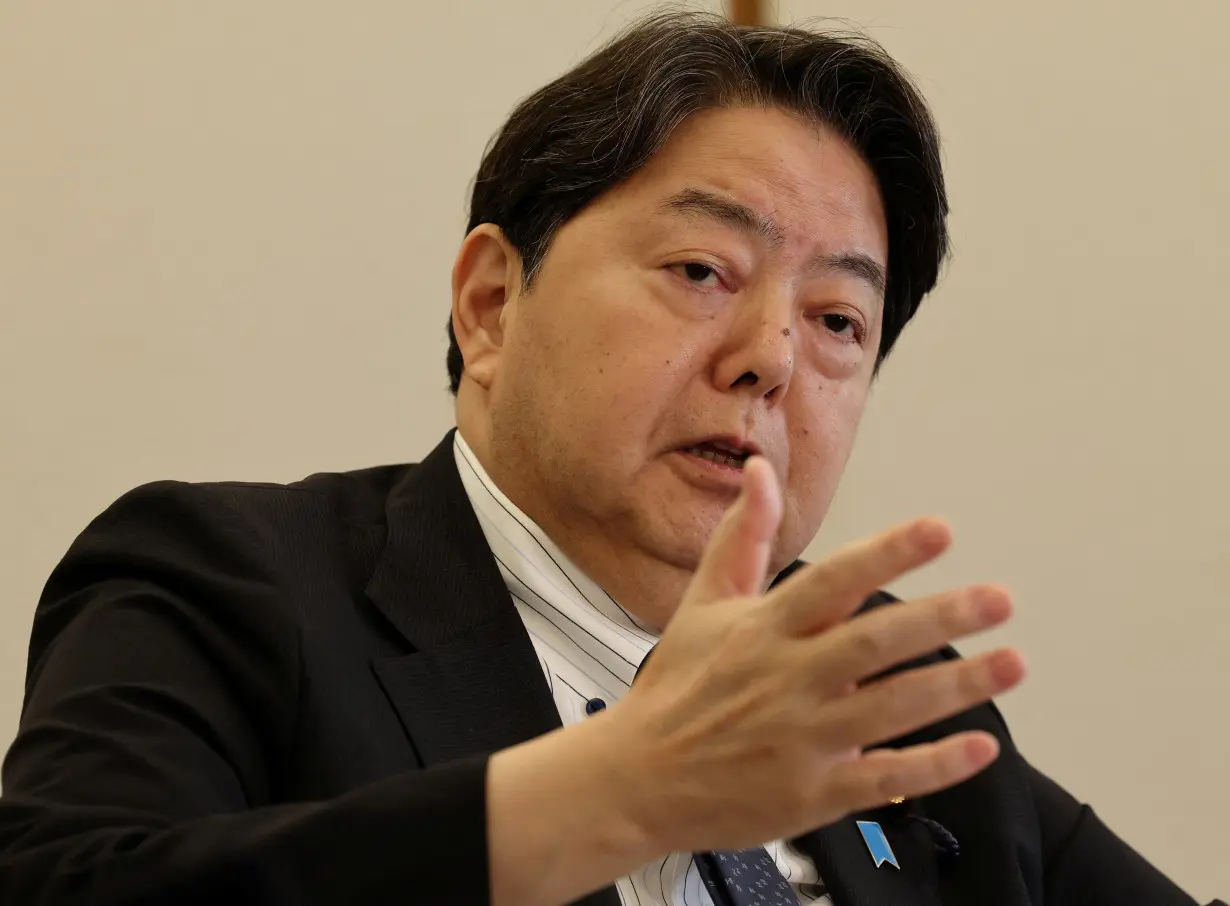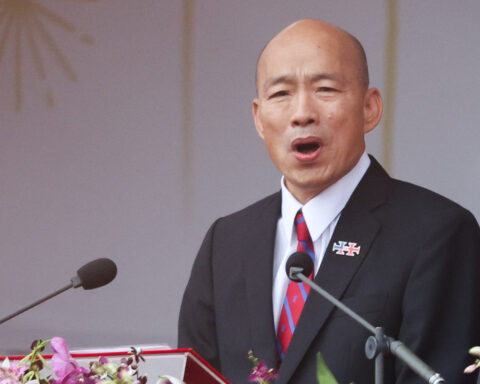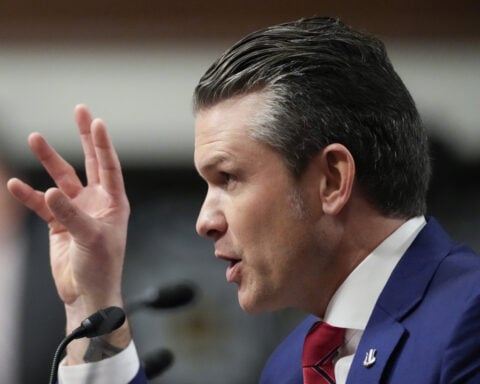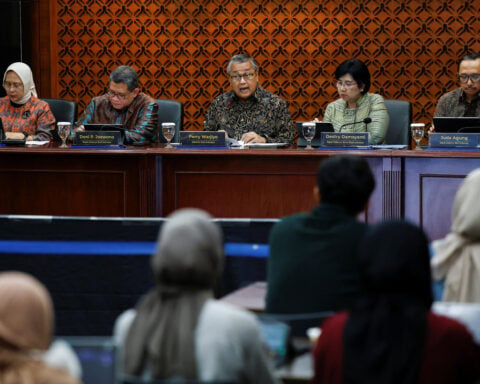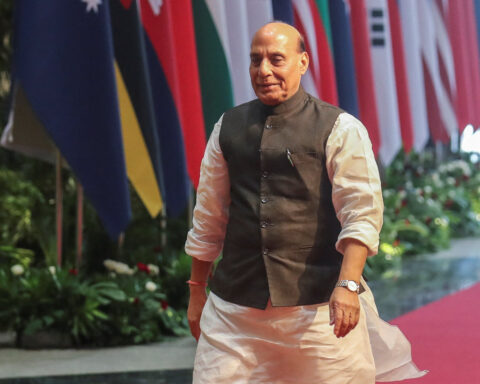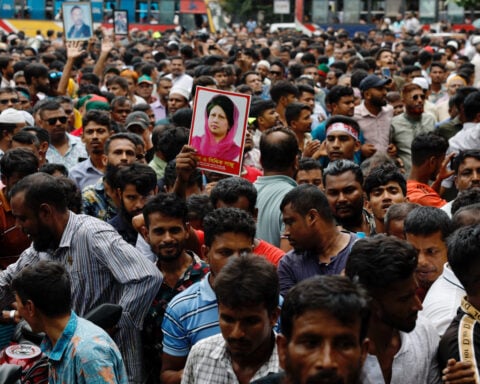MOSCOW (Reuters) - The Kremlin said on Monday that Japan's stance that its citizens should avoid travelling to Russia showed that Tokyo was increasingly aligned with "the collective West" and that its leadership did not want to develop ties with Moscow.
The Kyodo news agency reported on Monday that Muneo Suzuki, a veteran Japanese lawmaker known for advocating close ties with Russia, was visiting Moscow for talks with government officials in defiance of a government advisory against such trips.
It cited Japanese Chief Cabinet Secretary Yoshimasa Hayashi as saying that a government advisory was in place urging its nationals, including legislators, to avoid travelling to Russia.
When asked about the matter, Kremlin spokesman Dmitry Peskov told reporters that the Japanese leadership appeared to be seeking to pressure Japanese citizens who wanted to improve ties with Moscow from visiting Russia.
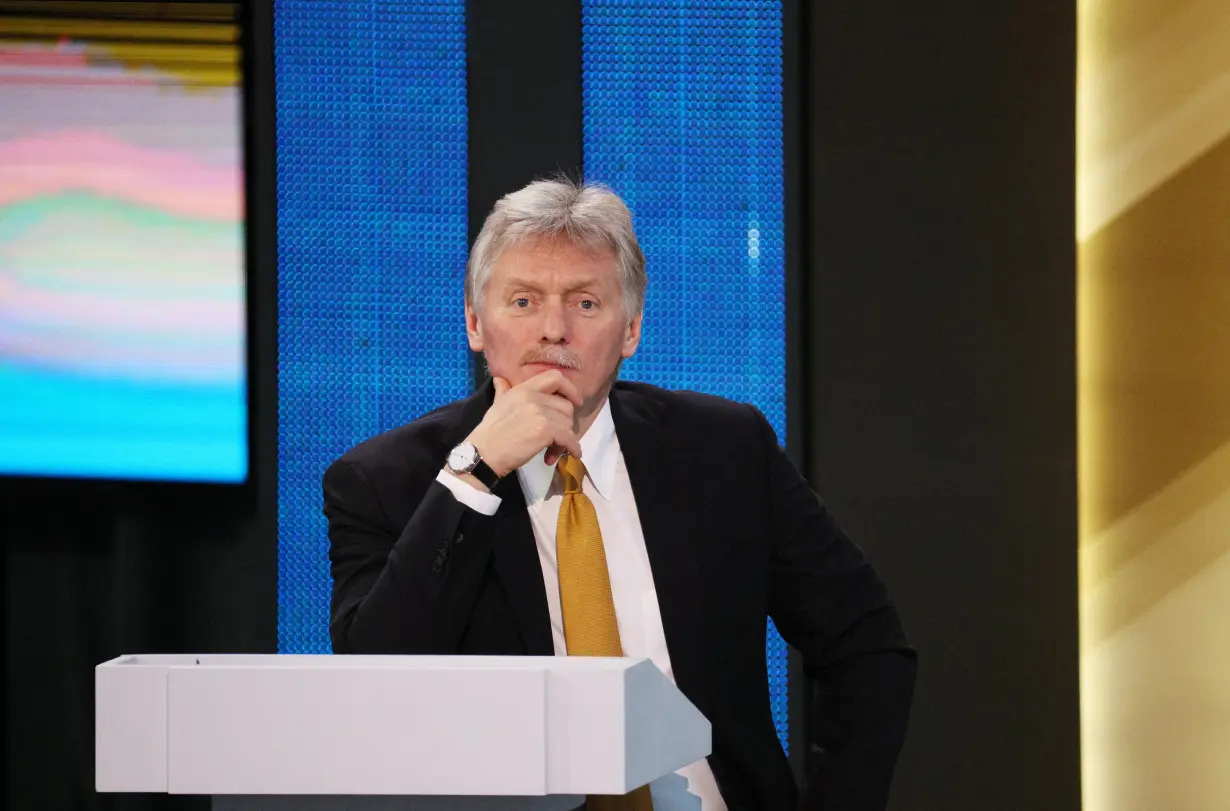
Asked if there would be contacts between Suzuki and the Kremlin, Peskov said there were none planned.
"It is clear that Tokyo is dominated by figures who are not in favour of developing bilateral relations. Unfortunately, the current leadership of Japan has expressed solidarity with the unfriendly, for Russia, actions of the collective West, and this cannot but be detrimental to our bilateral relations," Peskov said.
"Unfortunately, the leadership of the country (Japan) does not limit itself to this attitude towards our country and tries to pressure those who share a different point of view and try to find ways to establish contacts."
Tokyo and Moscow have long been embroiled in a territorial dispute over four islands off the coast of Japan, something that has prevented the countries from formally concluding a peace treaty since the end of World War Two.
(Reporting by Dmitry Antonov; Writing by Lucy Papachristou; Editing by Andrew Osborn)

 Supreme Court will hear Texas anti-pornography law that challengers say violates free-speech rights
Supreme Court will hear Texas anti-pornography law that challengers say violates free-speech rights
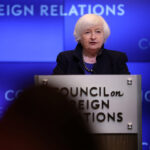 Yellen defends COVID spending, says it saved millions from losing jobs
Yellen defends COVID spending, says it saved millions from losing jobs
 Futures flat on caution ahead of bank earnings, key inflation data
Futures flat on caution ahead of bank earnings, key inflation data
 Comoros ruling party wins parliamentary elections, opposition rejects results
Comoros ruling party wins parliamentary elections, opposition rejects results
 Sweden seeks to change constitution to be able to revoke citizenships
Sweden seeks to change constitution to be able to revoke citizenships
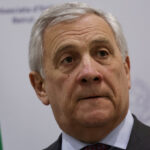 Italy protests to Venezuela over arrest of NGO worker
Italy protests to Venezuela over arrest of NGO worker
 Coors Light is changing its name
Coors Light is changing its name
 Tiger Woods’ son Charlie chuckles while watching his dad suffer heavy defeat in TGL debut
Tiger Woods’ son Charlie chuckles while watching his dad suffer heavy defeat in TGL debut
 Bayern Munich signs US youngster Bajung Darboe from LAFC
Bayern Munich signs US youngster Bajung Darboe from LAFC
